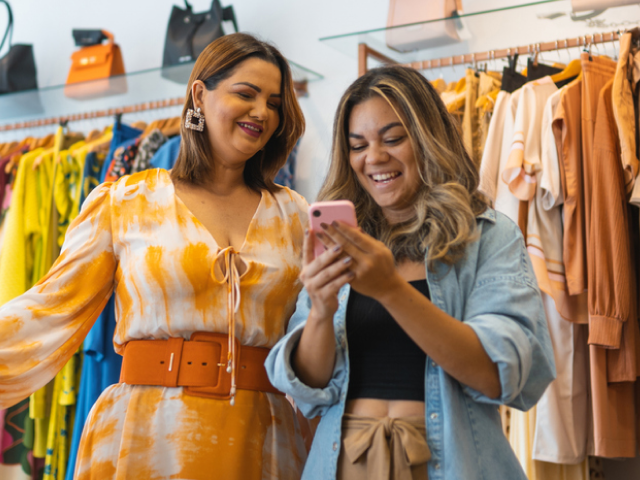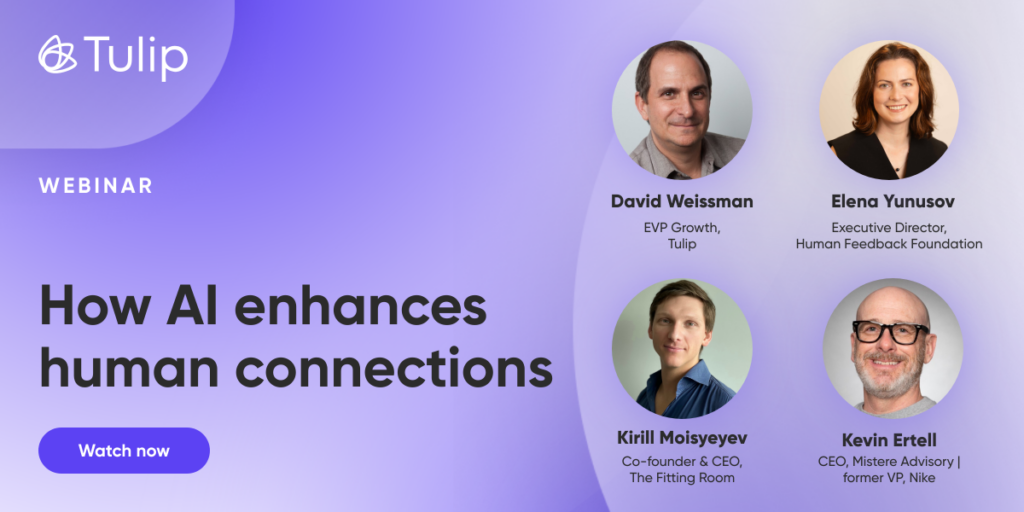Beauty, skincare, and cosmetics have come along way–and so have customer expectations.
Beauty is exploding. Not just in market size (although it’s expected to be worth over $600B by 2024) but also in brands, products, diversity, and competition. While customers may have once chosen what works and stuck with it, they’re now taking advice from influencers, doing their research, and trying out a nearly endless supply of options.
Top brands stand out because of the human connection they build with their customers. Whether it’s a first-time buyer looking for advice or a repeat shopper who needs a last-minute appointment, it all comes down to connecting consistently.
Here are three key practices leading beauty retailers apply to meet the expectations of modern shoppers.
Beauty advisors serve as guides through an omnichannel customer journey
Omnichannel, channeless, unified commerce— whatever you call it, the beauty industry has embraced a unique position within their digital and physical market. Social platforms like Instagram and TikTok have given a global platform to countless beauty brands and products for beauty customers to discover. After discovering a product, customers dive into their next stage of diligence— research, which is where the omnichannel experience is fundamental. Beauty customers spend 80% of their shopping journey in the research phase, and oftentimes this can be extremely overwhelming. This is where beauty advisors are given the opportunity to build the relationship.
Beauty advisors have a role unique from any other associates in the retail industry. Customers view advisors as experts on beauty and cosmetic products, and hold them to an elevated status when making purchasing decisions. Leading retailers understand this unique position and equip themselves to support the full omnichannel customer experience.
Customers shopping online often have in-depth questions about details like scent, undertone, or allergens that can only be answered by someone who intimately knows the product. Top beauty brands are connecting beauty advisors with online shoppers so they can guide them the same way they would in store. On the flip side, retailers are also giving advisors the ability to sell ecommerce products and get credited for their work. This lets beauty advisors get around issues with store inventory to get the customer the product they need. It also lets them continue selling after the customer leaves and focus on supporting how they want to buy rather than always trying to bring the customer into the store.
Personalization has replaced segmentation
Beauty is inherently personal. Products are finely tuned to target a range of specific skin sensitivities, undertones, and preferences. Customers expect retailers to have the same level of personalization. Gone are the days of segmenting customers by generic demographics, now is the time for intentional and authentic connection. There are three main components to supporting the personalization customers expect: Communications need to be customized at the customer level, the timing of the contact needs to provide a net benefit to the customer, and communications need to be two-way every time.
All three components start with accurate and accessible customer profiles. Customers don’t see a divide between channels or locations, so even though they might be talking to a specific beauty advisor for the first time there’s still an expectation that the advisor ‘know’ them from their other interactions with the brand. Beauty advisors need to be able to see what the customer bought online, details about their last trip to the store, and everything in between. This allows them to not only tailor the in-store experience, but to also reach out about the right things at the right time. Whether it’s a text about sunscreen before a beach vacation or a reminder that it’s probably time to restock, customers value micro-targeted messages that provide real value. To further build this loyalty, top retailers also allow two-way communication, so customers can reach out their advisor just as easily with needs and questions.
Meeting the expectations requires data
Offering a personalized, omnichannel experience isn’t possible without the analytics to understand it. Metrics that take a deeper dive into customers decision-making process such as average pre-purchase touchpoints help retailers strategize and make informed decisions for themselves.
Because so much of beauty consumer’s time is spent researching, it is important for beauty retailers to be there every step of the way. Being able to map and understand the full customer journey is important to building strong relationships with customers. Recording each interaction also gives a good historical record for what the customer is looking for, and how to make each subsequent interaction valuable, instead of restating the same information time after time.
Top retailers are focusing on bringing actionable data to every layer of their organization so that even beauty advisors are able to see how they’re performing and what they can do to improve.
Our webinar How to win over beauty and cosmetics customers walks through how leading beauty brands on building authentic and scalable connections with their customers before, during, and after their visit to the store. Watch now!


